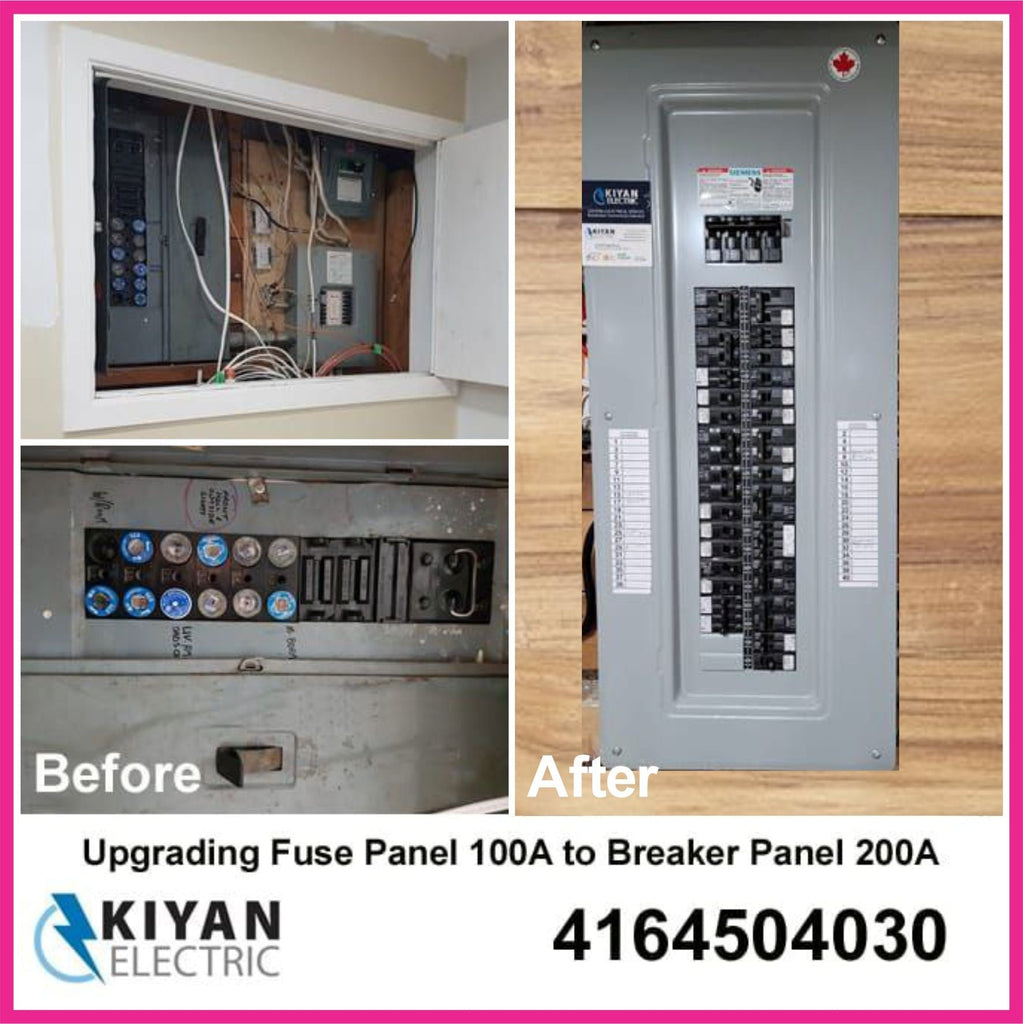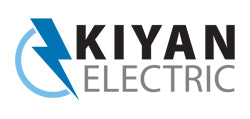Licensed Electrician in Richmond Hill

Please Fill out free estimate form to Schedule an Appointment to meet our Electrical contractor and master electricians or call us on (416) 450 ˗ 4030 to speak to one of our friendly team member or e-mail us: Info@kiyanelectric.ca
https://kiyanelectric.ca/pages/free-estimate
The Benefits of Hiring a Licensed Electrical Contractor for Your Electrical Wiring Needs in Richmond Hill
Whether you're wiring a new house, renovating a commercial building, or working on an industrial project in Richmond Hill, hiring the correct professional is essential. Electrical wiring not only provides power to your property, but also ensures its safety and functionality. For these reasons, it is critical to find a qualified electrician who has the necessary training, certifications, and insurance coverage.
Kian Electric Inc. is committed to offering high-quality electrical services that are suited to your specific household, business, or industry needs. Understanding the different types of wiring used in Canada and why expert monitoring is required might help you make more informed decisions regarding your electrical system. Here's why choosing a professional electrical contractor is crucial, as well as an overview of the many wiring alternatives accessible in Canada.

Wiring for Residential, Commercial, and Industrial Settings
Electrical wiring methods differ according to the environment and power requirements. Here's an overview of the common types of wiring used for residential, commercial, and industrial purposes:
In residences, the electrical system must meet both safety and functional standards. The most often utilized wiring types are:
· Romex wiring (non-metallic sheathed cable): is the most preferred option for domestic electrical installations. Romex wiring is versatile and inexpensive, and it is commonly used for in-wall lighting and outlet circuits.
· Conduit Wiring: Electrical wires can be housed in conduit to protect them from physical harm. This is typically utilized in garages or open areas.
Proper household wiring installation provides safe connections and eliminates the danger of electrical risks like overheating and fires.
Commercial facilities, such as offices, retail, and warehouses, require greater load capacity and reliability than residential spaces. Commercial wiring systems typically consist of the following:
· Flexible Metal Conduit (FMC): This type of conduit is utilized in applications requiring flexibility and endurance, such as commercial buildings where space usage may alter over time.
· Armored Cable (AC): Known for its strong protection, AC wiring is employed in commercial applications that require physical protection.
A certified electrician will guarantee that your commercial wiring adheres to local safety requirements and can withstand the demands of your business operations.
3. Industrial Wiring
Industrial wiring is the most sophisticated and specialized. It is utilized in establishments with massive equipment and machinery that require a lot of electricity. Common industrial wiring systems include the following:
· High voltage wire: is used to provide electricity to huge machinery and heavy-duty equipment.
· Tray Cable: is commonly used for industrial systems that must be routed along trays for ease of access and maintenance.
Industrial wiring must be sturdy and able to sustain extensive usage, so the skill of a professional electrician is required for installation.
Types of Wire Used in Canada: Copper vs Aluminum and Other Options
The type of wire you choose for your electrical system is crucial to its performance and safety. In Canada, copper and aluminum are the most often used materials for electrical wire. Here's the breakdown of each:
1. Copper wire
Copper is the most commonly used material for electrical wiring in both home and business systems. It is noted for its high conductivity, dependability, and flexibility. Advantages of Copper Wire:
· Superior Conductivity: Copper conducts more current than aluminum, allowing for narrower gauge wires capable of handling higher loads.
· Durability: Copper is more corrosion resistant, resulting in longer-lasting performance.
· Flexibility: Copper wires are easier to work with, simplifying installations and maintenance.
Copper is the favored material for most electrical systems due to its superior performance and safety.
2. Aluminum wire
Aluminum wire was extensively used in the past since it is less expensive than copper, but it does carry some hazards. Advantages of Aluminum Wire:
· Cost-effective: Aluminum is less expensive than copper, which can assist reduce the overall cost of large projects.
· Lightweight: Aluminum is lighter than copper, making it easier to install.
There are some challenges with Aluminum Wire:
· Lower Conductivity: To carry the same load as copper, aluminum wires must have a larger gauge.
· Prone to Expansion and Contraction: Aluminum expands and contracts more with temperature changes, which can lead to loose connections and potential fire hazards if not installed correctly.
· Corrosion: Aluminum wire is more prone to oxidation, which can increase resistance and result in overheating.
Aluminum wiring is still used in some applications, especially in high-voltage systems, although it requires careful installation and maintenance.
3. Other wire types
In addition to copper and aluminum, other specialized wires are employed in a variety of settings.
· Tin-Coated Copper: This wire is utilized when corrosion is a concern, providing an extra layer of protection against oxidation.
· Thermoplastic Insulated Wire: Plastic insulation is used to protect these wires from short circuits and damage. It is commonly used for conventional residential and commercial wiring.
· Flexible Wires: These are utilized in applications that demand movement or flexibility, such as appliances and equipment.
Choosing the appropriate wire type for your project ensures that your electrical system is both safe and efficient, especially when working in environments with specialized requirements.

Why Should You Hire a Licensed Electrical Contractor in Richmond Hill?
Hiring a qualified electrical contractor assures that your wiring installation meets the highest standards. Here are some important reasons to trust a licensed professional with your electrical work:
1. Expertise and Experience
A certified electrician has the necessary knowledge and experience to perform electrical installations, solve problems, and assure compliance with safety requirements.
2. Safety and Code Compliance
Licensed electricians obey local safety norms and regulations (such as those issued by the Electrical Safety Authority - ESA). This ensures that your installation meets code and reduces the danger of accidents or electrical fires.
3. Insurance and Liability Protection
A licensed contractor will have the necessary insurance, which includes at least $5 million in liability coverage and WSIB (Workplace Safety and Insurance Board) protection. This assures you are financially protected in the event of any accidents or damage throughout the project.
4. Proper Permits and Inspection
Electrical work in Richmond Hill requires ESA permits to guarantee that all safety rules are followed. A professional electrical contractor will handle all of the permits, inspections, and documentation on your behalf.
5. Licensed Electrician versus Licensed Electrical Contractor
Licensed Electrical Contractors are the only businesses in Ontario who are legally authorized to perform electrical work. Certified electricians are individuals employed by Licensed Electrical Contractors and are permitted to perform electrical work as employees of a Licensed Electrical Contractor.
While a licensed electrician can do electrical work, a licensed electrical contractor must manage large projects, ensure code compliance, and hire additional electricians as needed. Choosing a qualified electrical contractor guarantees that all components of your project are appropriately managed and completed.

Overall, whether you're working on a home, commercial, or industrial project in Richmond Hill, selecting a qualified electrical contractor is critical to ensure the safety and functionality of your electrical system. Kian Electric Inc. provides specialized services for a wide range of wiring systems, ensuring compliance with all applicable codes and regulations. Our skilled electricians are ready to help you with any wiring project, including copper or aluminum wiring and specialty systems for your house, company, or industrial building. Contact us immediately to discuss your electrical requirements and guarantee that your property is safely powered.

https://kiyanelectric.ca/pages/free-estimate

